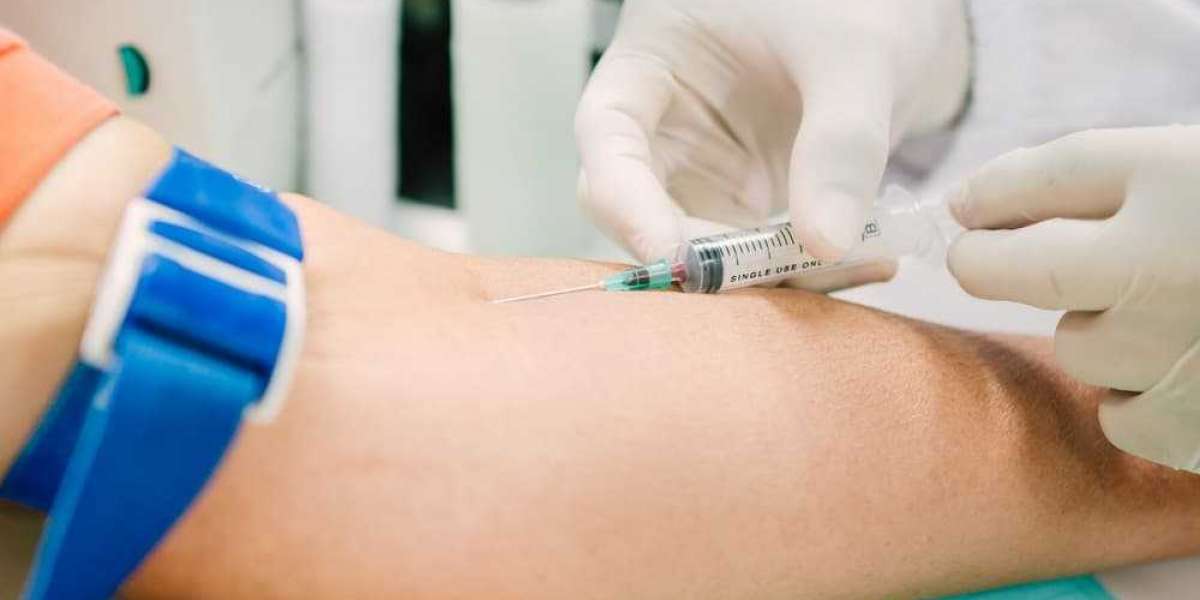Phlebotomy, the practice of drawing blood for medical testing, transfusions, or donations, is a vital component of the healthcare system. As the demand for skilled phlebotomists continues to rise, many individuals are considering entering this rewarding field. For those embarking on their journey, understanding what to expect during phlebotomy training for beginners is crucial. This article will delve into the essential components of phlebotomy training, providing a comprehensive overview of the skills, knowledge, and experiences that aspiring phlebotomists can anticipate.
Understanding the Basics of Phlebotomy
Before diving into the specifics of training, it’s essential to grasp the core responsibilities of a phlebotomist. These professionals are tasked with collecting blood samples from patients, which requires a delicate balance of technical skill and compassionate patient interaction. The process involves using various techniques and tools, such as needles and blood collection tubes, to ensure accurate and safe blood withdrawal. Additionally, phlebotomists must be adept at labeling samples and maintaining records, as these tasks are critical for the subsequent analysis that will inform patient care.
Phlebotomy training for beginners typically begins with an introduction to human anatomy and physiology. Understanding the circulatory system, including the veins and arteries, is fundamental in identifying the best sites for blood collection. Students will learn about different blood types, the significance of various tests, and the implications of bloodborne pathogens. This foundational knowledge is crucial, as it equips future phlebotomists with the understanding necessary to perform their duties safely and effectively.
Curriculum and Course Structure
Phlebotomy training programs can vary in length and content, but most include a blend of classroom instruction and hands-on practice. The curriculum generally covers a wide array of topics, starting with the necessary theory before progressing to practical skills. In a typical training course, students might expect to engage in subjects such as infection control, patient communication, and the ethical considerations surrounding blood collection.
One of the most significant aspects of phlebotomy training for beginners is the emphasis on practical experience. Aspiring phlebotomists will have the opportunity to practice drawing blood on mannequins and, eventually, on actual patients under supervision. This hands-on approach is invaluable, as it helps students build confidence and proficiency in their techniques. Instructors, often experienced professionals in the field, provide guidance and feedback, ensuring that students refine their skills before entering the workforce.
Additionally, many programs incorporate a clinical externship, offering students the chance to work in real healthcare settings. This experience is critical for understanding the day-to-day responsibilities of a phlebotomist and for applying theoretical knowledge in practical situations. Students will interact with patients, navigate the challenges of a clinical environment, and develop their communication skills—essential components of a successful phlebotomy career.
Certification and Licensure
Upon completion of phlebotomy training for beginners, aspiring professionals often pursue certification to enhance their employability. Various organizations provide certification exams, which typically assess a candidate's knowledge of phlebotomy concepts and practical skills. While certification is not always mandatory, it can significantly improve job prospects and demonstrate a commitment to the profession.
To prepare for certification, students may engage in review sessions that cover key topics from their training. These sessions often include practice exams and simulations of the certification test, allowing students to familiarize themselves with the format and types of questions they may encounter. Successfully passing the certification exam not only validates a phlebotomist's skills but also instills a sense of pride and accomplishment, paving the way for a fulfilling career in healthcare.
The Importance of Soft Skills
While technical skills are paramount in phlebotomy, the importance of soft skills cannot be overstated. Phlebotomists often work with patients who may be anxious or fearful about blood draws. Therefore, effective communication, empathy, and patience are essential attributes for anyone entering this field. Training programs typically emphasize the development of these interpersonal skills, preparing students to handle various patient interactions with professionalism and care.
Students learn techniques for calming anxious patients, explaining procedures in simple terms, and ensuring that individuals feel comfortable throughout the blood collection process. These skills not only improve the patient experience but also enhance the overall efficiency of the procedure, contributing to better outcomes for both patients and healthcare providers.
Career Opportunities and Job Outlook
With the healthcare industry continually evolving, the demand for skilled phlebotomists remains steady. Graduates of phlebotomy training programs can find employment in various settings, including hospitals, clinics, laboratories, and blood donation centers. The versatility of this profession allows individuals to choose environments that align with their interests and career goals.
Furthermore, the job outlook for phlebotomists is promising. According to the Bureau of Labor Statistics, employment in this field is projected to grow much faster than the average for all occupations. This growth is driven by an aging population, increased healthcare needs, and advancements in medical technology. As such, individuals pursuing phlebotomy training for beginners can expect to enter a dynamic and expanding job market.
Conclusion
In conclusion, embarking on a phlebotomy training program offers aspiring healthcare professionals a unique opportunity to develop essential skills and knowledge that will serve them throughout their careers. From understanding the intricacies of blood collection to honing interpersonal communication skills, training equips individuals to thrive in a rewarding profession. Those interested in beginning their journey in phlebotomy should consider enrolling in a reputable training program that provides a comprehensive curriculum and hands-on experience.
For those ready to take the next step, Este Training Academy offers a robust phlebotomy training program designed for beginners. With expert instructors and a commitment to student success, Este Training Academy is the perfect place to launch your career in phlebotomy. Enroll today and take the first step towards a fulfilling future in healthcare!






